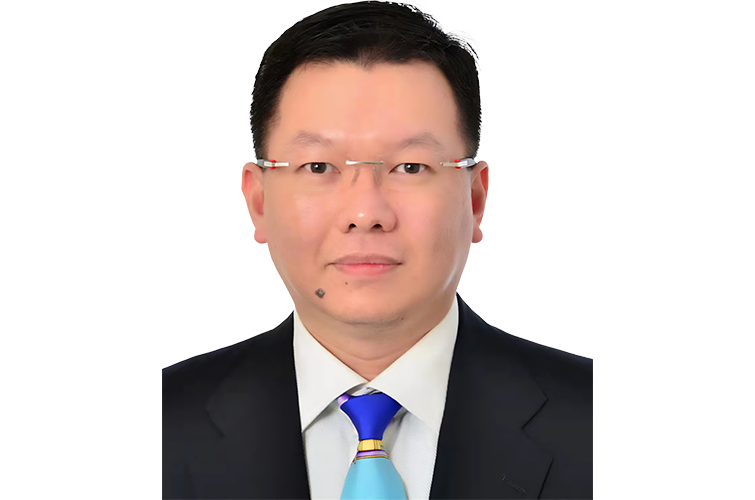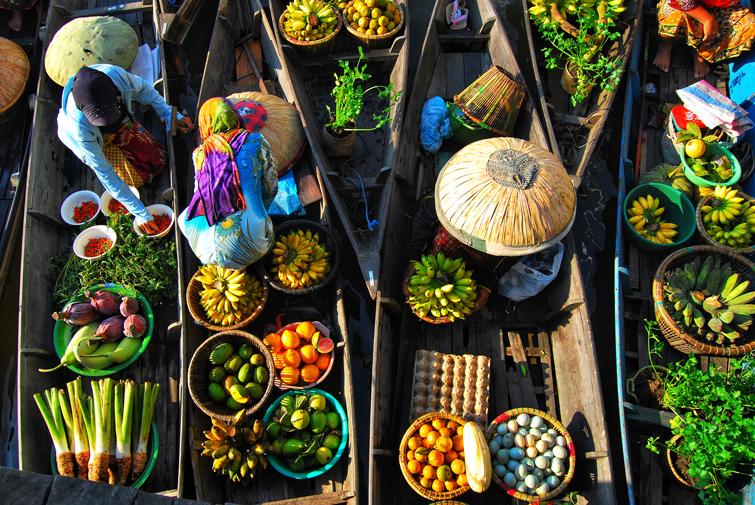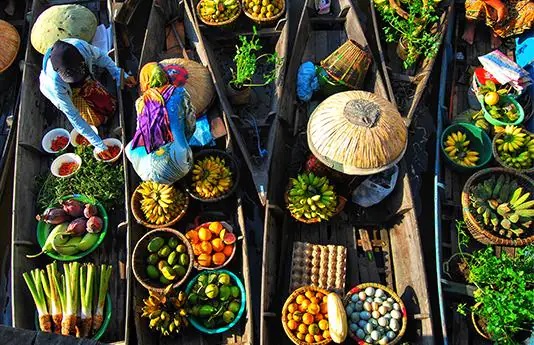
Liky Sutikno, Chairman of the Indonesia Chamber of Commerce in China
Liky Sutikno is the Chairman of Indonesia Chamber of Commerce in China (INACHAM). He has over 20 years of experience in supply chain management, manufacturing, corporate strategy, merger & acquisition and investment. He has broad experience working in multicultural teams in the US, Europe and Asia. He serves as a board member for several companies in the US and Asia, including a medical company listed on the Hong Kong Stock Exchange. He has also been involved in numerous deals between Indonesia and China as part of his role as the Chairman of INACHAM.

Although Indonesia is still in the process of ratifying the Regional Comprehensive Economic Partnership (RCEP), Indonesia, as the key initiator of RCEP, sees it as an opportunity to deepen its role in the global supply chain and attract investment and technology from countries like China.
Indonesia has always been an active player in global trade, and a good one too. In 2021, bilateral trade between Indonesia and China reached USD $124.3 billion. In the first quarter of 2022, bilateral trade reached USD $32.76 billion. Indonesia has continuously experienced a trade deficit with China in the past few years, but it has turned into a trade surplus, living up to its name as one of the most influential countries in ASEAN.
Under the leadership of our President Jokowi, Indonesia has converted its exports from commodity-based products to higher-end, value-added products in the last 5 years. However, Indonesian products are still struggling to gain access to the Chinese market.
Only five kinds of tropical fruits grown in Indonesia have been approved for entry into the Chinese market, whereas other countries sell more than ten varieties at much larger trade volumes.
With RCEP, not only will tariffs be reduced, but we also expect to gain a level playing field and equal access for all signatories.
Indonesia is blessed with rich natural resources. Among some of the most popular “non-mining related” resources, like coffee, cacao, rubber, seaweeds, wood and wood-related products, most are exported as raw or semi-processed materials. However, these resources would offer much higher value if they were processed locally in Indonesia into higher-end products through better technology. Other RCEP members, such as China, are stronger in processing technology and technical know-how. By joining RCEP, the flow of investment and technology will be easier and all signatories can leverage each other’s strengths to unlock greater economic potentials.
Indonesian firms will have better access to more advanced technology to upgrade their production processes to convert the abundant natural resources into products with higher value and be part of the global supply chain. This will create more local jobs with increased skillsets.
Indonesia’s cost-effective labor, coupled with cheap abundant raw materials, makes it an ideal destination for Chinese manufacturers looking to relocate their factories or invest overseas. This will in turn help both China and Indonesia move up the value chain, making it a win-win opportunity for both countries. We are already seeing the trend for industrial transfer from China to Southeast Asian countries like Indonesia. Chinese manufacturers process raw materials or assemble parts into value-added products locally in Indonesia before shipping the final products worldwide. We hope to see China, a country with advanced technical know-how and engineering prowess, invest more into Indonesia. We believe that the ratification of RCEP will accelerate the rebalancing in the region.
To become more competitive, Indonesia needs to upgrade its infrastructure, develop manufacturing technology, train its workforce, reduce bureaucracy and enhance regulations. All in all, combined with the country’s natural resources, Indonesia has many advantages in global trade.
Foreign investment has played an important role in speeding up Indonesia’s industrial transformation and its transition to using more green renewable energy as part of its Net Zero commitment. North Kalimantan is strategically positioned to be the green energy hub in Asia by leveraging its hydropower potentials. Sulawesi, with its abundant nickel resources, has been transformed into the world’s 3rd largest exporter of stainless steel products and in Weda Bay Industrial Park, we are building an EV battery center with investment from global players like CATL and LG.
Given that Indonesia has the largest Muslim population in the world, I hope Indonesia and other signatories can work together in the context of RCEP to establish a halal healthcare center in Indonesia, by building tropical disease R&D centers, medical devices and bio-tech parks to serve the global Muslim community. Indonesia hopes to receive technological and investment support from China or India in upgrading its healthcare supply chain.
China is now Indonesia’s second largest source of foreign direct investment. Under the framework of RCEP, we believe more collaboration can happen in its bilateral relationship in the next two to three years.
The Indonesian Chamber of Commerce (INACHAM) is very much looking forward to the full implementation of RCEP. Our members are mainly Indonesian companies doing business in and with China. Most of them engage in plantation-related sectors. Two of Indonesia’s largest paper factories, the largest tire manufacturer and the largest coffee producers are all operating in China. Hopefully with more transparency, trust and collaboration generated from joining RCEP, more Indonesian companies can overcome existential trade barriers and jointly support Indonesia to move up the value chain in the Asia Pacific region. As a facilitator, the Chamber is always ready to support its members and their Chinese partners in accelerating trade, investment and economic relations between Indonesia and China.




















